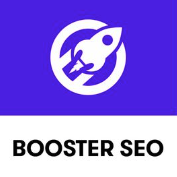Or go to our Shopify Theme Detector directly
Shopify Comparison
Last modified: April 18, 2024

If you’re a business owner looking to navigate the complex world of eCommerce platforms, you might find yourself overwhelmed by the multitude of options available. You’re seeking clarity on how Shopify compares to other platforms and how it can benefit your online business. Let’s simplify this comparison for you and help you make an informed decision.
Curious to uncover how Shopify’s features stack up against its competitors? Stay tuned to discover the insights that can shape your online business journey and make the decision-making process easier for you.
- Shopify Features Overview
- Shopify Pricing Comparison
- User Experience Analysis
- Competitor Comparison with Shopify
- Shopify vs Squarespace: Aesthetic Appeal vs eCommerce Functionality
- Shopify vs BigCommerce: Scalability for Growing Businesses
- Shopify vs WooCommerce: The Open-Source Dilemma
- Shopify vs Wix: User-Friendly Platforms for Startups
- Shopify vs Magento: Scalability Meets Customization
- Weighing Your Options Across Platforms
- Conclusion
- FAQs
| # | Name | Image | |
|---|---|---|---|
| 1 |

|
Customer Accounts Concierge
|
|
| 2 |

|
Judge.me Product Reviews
|
|
| 3 |

|
Upsell & Cross Sell — Selleasy
|
|
| 4 |

|
Klaviyo: Email Marketing & SMS
|
|
| 5 |

|
Boost AI Search & Filter
|
|
| 6 |

|
Locksmith
|
|
| 7 |

|
EcomSend Pop Ups, Email Popups
|
|
| 8 |

|
Booster SEO & Image Optimizer
|
|
| 9 |

|
PH MultiCarrier Shipping Label
|
|
| 10 |

|
Growave: Loyalty & Wishlist Platform
|
|
|
Show More
|
|||
Shopify Features Overview
With access to over 6000 apps in the Shopify App Store, users can easily expand the functionality of their online stores, tailoring them to meet specific needs and preferences. This extensive app ecosystem allows for seamless integration of various tools and features, empowering businesses to create unique and personalized shopping experiences for their customers.
One way to distinguish your brand from competitors on Shopify is by carefully selecting the right theme or template for your store. Shopify offers a range of free and paid themes, allowing you to choose the one that best aligns with your brand and meets your business requirements.
While Shopify’s built-in themes are designed for ease of use and customization, some businesses may prefer to explore third-party options like those available on ThemeForest, which offer a wider variety of designs and features.
Shopify’s multi-channel selling capabilities enable businesses to broaden their reach and optimize sales across different platforms. By seamlessly integrating with social media platforms, marketplaces, and other sales channels, businesses can effectively diversify their online presence and maximize their sales potential.
Shopify simplifies the shipping process and enhances overall customer satisfaction by streamlining order fulfillment. Through automated order management and shipping tools, businesses can efficiently process and fulfill orders, ensuring timely delivery and a positive customer experience.
When it comes to customizing and managing your Shopify store, you have the option of using either the Shopify CLI (Command Line Interface) or the Shopify Theme Kit. The CLI is a powerful tool that allows developers to manage their Shopify themes and apps from the command line, while the Theme Kit is a desktop application that provides a user-friendly interface for theme customization and deployment.
Additionally, Shopify offers a built-in page builder that allows you to create and customize pages for your online store without the need for extensive coding knowledge. This feature can be a convenient alternative to using a third-party theme or template, especially for businesses that prioritize ease of use and quick setup.
Shopify Pricing Comparison
Shopify offers three main pricing plans: Basic Shopify at $29 per month, Shopify at $79 per month, and Advanced Shopify at $299 per month. The Basic Shopify plan is ideal for startups and small businesses just getting started with ecommerce, while the regular Shopify and Advanced plan provides more features suitable for growing businesses.
Transaction fees range from 2.9% + 30 cents to 2.4% + 30 cents based on the plan chosen. Credit card fees vary between 2.9% + 30 cents to 2.4% + 30 cents for online credit card rates and 2.7% for in-person credit card rates. You can save money by paying for an annual plan instead of monthly – the Basic Shopify plan is $348 per year versus $29 per month.
For larger businesses, Shopify Plus provides custom pricing to meet specific requirements. This option caters to companies with higher transaction volumes and more complex operations. Shopify Plus offers scalability, advanced features, and dedicated support suitable for enterprise-level businesses.
Depending on the scale and demands of your business, Shopify’s pricing plans differences and additional services cater to a wide range of needs and budgets. Whether you’re a small business pondering between Shopify Lite or Basic, or a large enterprise thinking about growing your business with Shopify Advanced, Shopify has options to suit your requirements.
User Experience Analysis
Shopify offers inventory management tools to help businesses keep track of their products effectively, ensuring seamless operations.
Users can choose from a variety of themes on Shopify to customize their online stores and maintain a consistent brand identity. Setting up and managing an online store on Shopify is quick and easy, thanks to its user-friendly interface that caters to mobile browsing trends.
Moreover, Shopify offers an intuitive and user-friendly experience, simplifying store setup and customization with a wide range of themes and 24/7 support. Competitors like Amazon focus on a vast product marketplace and logistics network with its independent retailers, while eBay caters to auctions and a diverse range of sellers with their dropshipping, and Etsy specializes in handmade and vintage items with a strong community aspect.
Each platform, including Shopify, has distinct user experience advantages tailored to different business needs, making the choice dependent on specific priorities like design flexibility or eCommerce functionality.
Competitor Comparison with Shopify
Choosing the right eCommerce platform depends on a variety of factors, including the nature of your business, your technical expertise, and your long-term goals. Compare the pricing of Shopify and its competitors is advisable to find the best value for your business.
Assess features like customization, app integrations, and marketing tools to match your selling needs. Another thing is to review customer support levels to ensure timely assistance from Shopify and its competitors.
Shopify vs Squarespace: Aesthetic Appeal vs eCommerce Functionality
Shopify excels in comprehensive eCommerce features and scalability, making it ideal for businesses focused on growth. Squarespace, with its superior design templates, suits those prioritizing website aesthetics. While Shopify offers extensive support and integration options, Squarespace provides a more straightforward approach for visually-driven sites.
Shopify vs BigCommerce: Scalability for Growing Businesses
Shopify and BigCommerce both cater to businesses aiming for expansion but differ in usability and customization. Shopify’s user-friendly interface appeals to beginners, whereas BigCommerce offers more built-in features for a slightly more technical audience. BigCommerce stands out with its no transaction fee policy, contrasting with Shopify’s varied plan fees.
Shopify vs WooCommerce: The Open-Source Dilemma
Comparing Shopify to WooCommerce highlights the ease of use versus customization debate. Shopify provides an all-in-one solution with hosting and security, suitable for users seeking simplicity. WooCommerce, a free WordPress plugin, offers extensive customization at the cost of requiring more technical setup and maintenance, ideal for those with specific needs.
Shopify vs Wix: User-Friendly Platforms for Startups
Shopify and Wix serve different primary markets; Shopify focuses on robust eCommerce capabilities, while Wix is better suited for general website building with added eCommerce functionality. Wix’s drag-and-drop editor is perfect for customization without complexity, whereas Shopify’s ecosystem is designed for deep eCommerce integration.
Shopify vs Magento: Scalability Meets Customization
Shopify’s simplicity and user-friendly approach contrast with Magento’s complexity and flexibility. Magento, open-source and free, caters to tech-savvy users or larger businesses needing custom solutions. Shopify simplifies the eCommerce process with less technical hassle, making it accessible for businesses of all sizes.
Weighing Your Options Across Platforms
Transitioning from the comparisons of Shopify with Squarespace, BigCommerce, WooCommerce, Wix, and Magento, it’s clear that Shopify holds its own against a wide range of e-commerce platforms.
However, to truly understand Shopify’s strengths and weaknesses, it’s essential to delve deeper into its performance against other notable competitors in the market.
When it comes to scalability, Shopify’s cloud-based solution outshines OpenCart‘s self-hosted, open-source approach, allowing businesses to expand seamlessly without extensive technical expertise. Shopify’s user-friendly interface and intuitive design provide a superior experience compared to PrestaShop’s open-source platform, which may be more challenging for non-technical users.
Integrated marketing tools like email campaigns, social media integration, and abandoned cart recovery give Shopify an edge over Weebly‘s primary focus on website building. While 3dCart caters to businesses seeking extensive customization, Shopify strikes a balance between functionality and simplicity.
Renowned for its comprehensive 24/7 customer support, Shopify surpasses Volusion in this aspect. For digital product sales, Kajabi specializes in online courses and memberships, but Shopify’s robust e-commerce capabilities can handle both physical and digital offerings. Businesses heavily reliant on Zoho’s suite may find Zoho Commerce, with its seamless CRM integration, a more suitable choice over Shopify’s CRM integrations.
Conclusion: Shopify Comparison
Shopify stands out as a reliable e-commerce platform that offers a user-friendly experience, diverse payment options, and exceptional customer support. Its competitive pricing and scalability make it a top choice for businesses aiming to expand their online presence.
When compared to alternatives like Wix and BigCommerce, Shopify’s features and flexibility make it a comprehensive solution for various business needs.
Overall, Shopify proves to be a dependable and efficient choice for businesses of all sizes, helping them thrive in the competitive world of e-commerce.
-
Is Anything Better Than Shopify?
While Shopify is a leading eCommerce platform, alternatives like WooCommerce offer robust features, particularly for WordPress users seeking seamless integration. However, the choice ultimately depends on specific business needs and preferences.
-
What are some alternatives to Shopify for e-commerce businesses?
Several e-commerce platforms offer unique strengths that may be better suited to your specific needs than Shopify. Analyze features, scalability, integrations, and support to determine the best fit for your business.
-
Is there a free alternative to Shopify?
Yes, platforms like WooCommerce and Magento offer free versions with extensive customization options, making them viable alternatives to Shopify for budget-conscious businesses. These options provide flexibility and scalability without the initial investment.



 PageFly Landing Page Builder
PageFly Landing Page Builder  Shopify
Shopify  SEMrush
SEMrush  Website Maintenance
Website Maintenance  UpPromote
UpPromote